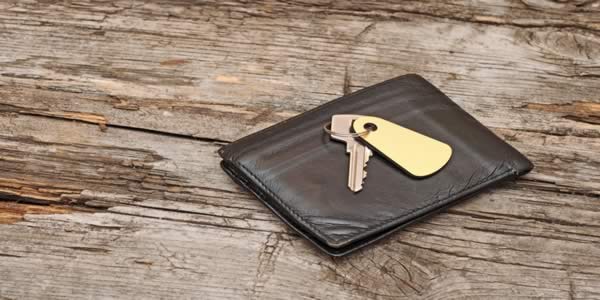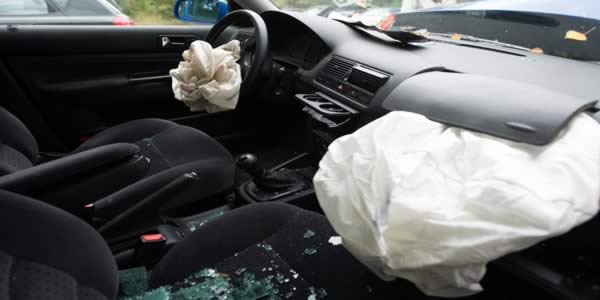As criminal defense lawyers in Charleston, we are often asked about what happens at a bond hearing in South Carolina. A bond hearing, sometimes referred to as a bail hearing, is usually the first thing that happens after a person is arrested in South Carolina. After the person is booked at the jail, then a bond judge will hear the case and determine whether to let the charged person out, and if so, under what conditions (making bail).
What are the Types of Bail Bonds in South Carolina?
In South Carolina, there are two types of bonds – a surety bond or a personal reconnaissance (PR) bond. A bond court judge may allow someone out of jail based on their own “personal reconnaissance” without posting any bail money. A personal reconnaissance bond is often called a “PR bond.” However, a surety bond requires a person to pay money (or pledge collateral) to get out of jail. The amount of the surety bond has to be posted with the jail, or you will have to hire a bondsman who will charge a non-refundable fee in exchange for posting the bond for you. In misdemeanor cases, a bond might be a few hundred dollars or a couple thousand. In more serious cases such as felony offenses, the bond is usually higher. In addition to posting cash or using the services of a bail bondsman, in some cases you can pledge collateral, such as a home or land, to satisfy the amount of the bond. The collateral has to be an equal or greater value than the amount of the bond.
How Does a South Carolina Judge Decide Which Bond to Give?
The two primary considerations for the bond judge are (1) whether the person arrested is a flight risk and (2) whether the person arrested is a threat to society. In reviewing whether the person is a flight risk, the judge considers many things, which include the nature of the charges and the person’s ties to the community. The more serious the charge, the more likely someone is to flee and not face them. On the other hand, the more closely connected to the community a person is, the less likely he or she is to flee. Having local children, family, and jobs all show ties to the community. Having lived in the area for a long period of time also shows these ties. If the defendant turned himself in, that goes in favor of showing that he does not intend to evade the charges. However, there are no hard and fast rules, and the bond judges have a lot of discretion in determining flight risk.
In considering whether the person is a threat to society, the judge looks at many things as well, such as the nature of the offense and the person’s history. If the charge involves a victim, the judge will offer to hear from the victim regarding whether he or she feels the defendant is still a threat.
In all, the Constitution does prohibit “excessive bail,” and there is some law that says that bail can’t be higher than what will insure the accused shows up for trial. Otherwise, in cases punishable by death or by life imprisonment, the judge can deny the person bond, which means the person will have to sit in jail until trial unless the defendant’s lawyer can get the bond reduced.
How Long Can You Be Held Without a Bond Hearing in South Carolina?
In most cases in South Carolina, bond hearings are supposed to be held within 24 hours of the arrest. However, we’ve seen it longer in some cases. For example, a person charged with DUI may still be too intoxicated to appear before the judge. Sometimes the police officer just doesn’t get the paperwork finished and submitted in time for the hearing. Unfortunately, there isn’t really a good remedy for someone who is held a day or so longer than they should have been. Fortunately, in our experience, this hasn’t been a huge problem, even if a few cases do slip past 24 hours. It’s important to be in touch with the police department and the bond court to find out exactly when it will be scheduled. You don’t a lot of time to hire a lawyer, so if you are looking for one, you better act quickly. Call us to speak with one of our criminal defense lawyers. Even if the bond hearing passes, we will still speak with you or with the person charged about preparing a defense to the criminal charges.
In cases punishable by death or life imprisonment bond is set by a circuit judge, which usually takes longer than 24 hours, sometimes weeks. If the charge is burglary in the 1st degree, the normal bond judge can hear the case unless the solicitor objects, but they often do, which means burglary 1st cases get heard by a circuit judge as well. One of the advantages to having a lawyer for a burglary 1st charge is that sometimes we can get the bond hearing before the normal bond judge so it happens much quicker. Finally, if the person is charged with a “violent crime,” as defined in Section 16-1-60 of South Carolina’s Code of Laws, and the person is already out on bond on a previous “violent crime,” then a circuit judge must hear the case, which can take up to 30 days in this scenario.
Who Can Be at a Bond Hearing in South Carolina?
In some courts, such as the City of Charleston or Charleston County, the person accused is often not physically present but instead participates through a video conference. If the case involves a victim, such as an assault charge, then the victim and his or her advocate have a right to be at the hearing. Some representative of the police department will be there. Your lawyer will be there if you have one. Also, supporters of the accused such as family members may be there, but the court may limit how many are allowed in the courtroom at one time. We like to bring supporters with us to bond hearings because it helps show the “family ties” that show our client isn’t a risk of flight.
What Will the Bond Court Judge Do Besides Set Bail?
In South Carolina, the bond court judge may impose other conditions in addition to the posting of bail before someone can be released. If there is a victim in the case, then the judge will likely order that the defendant have zero contact with the victim. The judge may require the person to wear an ankle monitor to make sure he or she doesn’t go to certain places. The judge may require the person to be on home arrest. In a stalking case, the judge can order a mental health assessment. The bond will likely prohibit the defendant from leaving the state without first getting permission from the solicitor or the judge. There are many other things a judge can order as a condition of bond, so it is important to address these things at the hearing and for the defendant to be aware of the additional conditions so he or she does not violate them.
It is important to know that the defendant is not asked to plead guilty or not guilty at the bond hearing. The only thing that happens at the bond hearing is that bail gets set, with or without conditions as we described above.
Should a Defendant Speak at a Bond Hearing?
In deciding bail, the judge will want to know about the person accused and will often ask questions such as how far the person went in school or where the person works. The accused has an absolute right to remain silent. For this reason, we believe the best practice is to have an attorney at the bond hearing. That way, the attorney can do all of the talking so that his client can exercise his or her right to remain silent. In some cases, the judge will start exploring things that relate to the charge, and it is possible the accused may say something that can be used against him later. There is no reason to speak if you can have your lawyer speak for you.
Can I Get My Bail Money Back in South Carolina?
If the criminal charges are dismissed or the accused is found not guilty at trial, then that person is entitled to the return of the money or collateral that they paid or pledged to bail out. Of course, if you paid a bondsman, that it the fee for their services for which you don’t get a refund. If you fail to show for court, the bond is forfeited. If you plead guilty or are found guilty, the bond is discharged.












